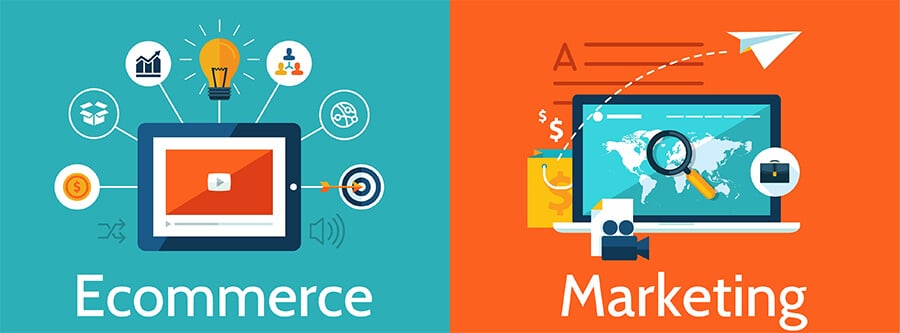
Ecommerce marketing is the practice of increasing awareness of an online store’s products and brand. Traditional marketing strategies can be adapted to ecommerce marketing in the digital world, allowing firms to gain from individuals ready to buy.
Online markets are bustling and growing in popularity. Stores and organizations may use ecommerce marketing to tap into this rising influence by directing consumers to an ecommerce website.
Online retailers can use digital content, social media, search engines, and email campaigns to attract visitors and sell products.
Overall, ecommerce website marketing is considered as win-win.
- Ecommerce Marketing Plan
- Top Ecommerce Firms
- Ecommerce Tools
Ecommerce Marketing Plan
The visual nature of ecommerce sites online store owners must use social media to promote their products. After all, success on social media depends on using imagination to draw attention and traffic to online shops. It is one method of converting top-of-funnel traffic into sales and customers. There are several ways to achieve this. Among the best are:
- SEO: Improved organic search results can help e-commerce sites gain both relevancy and popularity.
- PPC: This is a good option. Adsense is a service that allows you to pay other websites to advertise on their site.
- Email Marketing: This is a terrific approach to keep current consumers interested and loyal.
- Display Advertising: Excellent for busy areas. You can generate graphics and links that end up in front of the buyer, encouraging them to check you out.
Top Ecommerce Firms
Here is a list of the top Internet retailers that are classified as ecommerce sites. This is where ecommerce marketing comes in helpful, allowing existing users of these top sites to participate in new shopping options. Some of the biggest ecommerce sites include:
- Amazon, Inc.: Founded in Seattle in 1994 by Jeff Bezos, Amazon has become a household name in online shopping. This internet store has the world’s highest revenue now, but humble beginnings.
- eBay Inc.: In the early days of the dot-com boom, eBay Inc. pioneered internet purchasing. The company was founded in 1995 in San Jose, California, and offers both online auctions and traditional buy-it-now shopping.
- Jingdong: Based in Beijing, this internet retailer is the first of three big Chinese enterprises. Despite competition from Alibaba, Jingdong has over a quarter of a billion registered users. The company was founded in 1998 and began trading online six years later. Today, the company thrives with its high-tech delivery system that includes robots, AI, and drones.
- Rakuten Inc.: A Japanese e-commerce startup founded in 1997, Rakuten Inc. They also handle internet banking, shopping, and credit card transactions.
- Zalando: The first European company, headquartered in Berlin. It includes internet retailers that sell clothing and shoes.
- B2W Companhia Digital: Online retailer established in Brazil. B2W Companhia Digital controls 50% of the market. It was founded in 2006 and has multiple online ecommerce websites.
- Groupon: Starting in 2008 in Chicago, Groupon revolutionized the concept of group discounts in online buying. Customers can contact local companies in 500 cities worldwide.
Any retail or wholesale organization would want to use ecommerce marketing to reach their target market. This technique promotes Internet competition and global reach.
Ecommerce Tools
Some ecommerce tools might help businesses keep up with changing marketing methods. Listed below are a few:
- EWCart
- Jazva
- Shipedge
- Shopaccino
- Ecom365cloud
- Shopify
- 3D Cart
Thus, Ecommerce marketing is a potent instrument for promoting any online retail or wholesale firm, as well as trade associations.